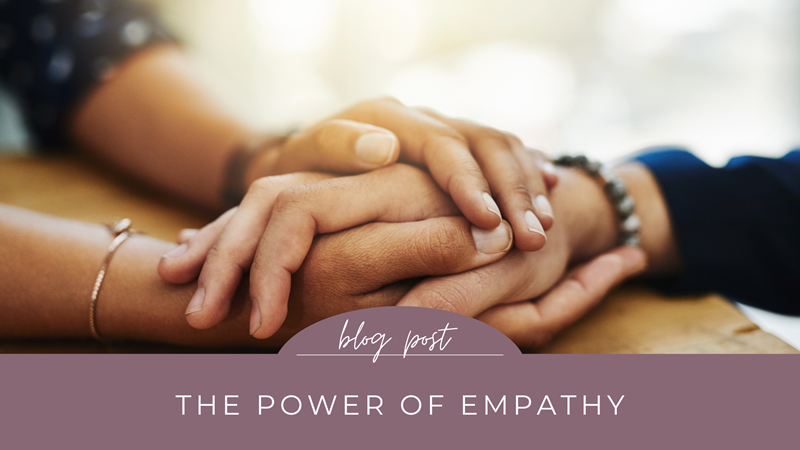The Power of Empathy: Strengthening Relationships Through Understanding
- Myra Hurtado

- Sep 19, 2024
- 2 min read
Updated: Jun 5, 2025
Empathy is a cornerstone of healthy, fulfilling relationships. At its core, empathy is the ability to understand and share the feelings of another person. This goes beyond simply hearing someone’s words; it involves truly listening, sensing their emotions, and validating their experiences. When we practice empathy, we create a safe space for others to express themselves without fear of judgment. This sense of safety fosters trust, deepens connections, and allows relationships to thrive. Without empathy, misunderstandings and emotional distance can grow, leading to feelings of isolation or resentment.
In close relationships, whether romantic, familial, or platonic, empathy helps us navigate conflict and differences more effectively. When we take the time to see things from another’s perspective, it becomes easier to approach problems with compassion rather than defensiveness. We’re more inclined to respond thoughtfully, offering support instead of criticism. This can prevent escalation of disagreements and help both parties feel understood, which is essential for resolving issues constructively.
Furthermore, empathy promotes emotional intimacy.
John and Julie Gottman have contributed in incredible ways to the field of marriage and family therapy. Their research and expertise on relationships have had profound impact on this world. They offer us four key components to practicing empathy:
Listen Without Judgment: Truly hearing someone means setting aside your own opinions and biases. Focus on their words and emotions without forming immediate judgments or solutions.
Look for Feelings: Pay attention to the emotional undertones of what they’re saying. Recognize and identify the feelings behind their words to understand their experience more deeply.
Sit in the Feeling with Them: Allow yourself to experience the emotions your friend is going through. This shared emotional space can foster a deeper connection and provide support.
Summarize and Validate: Reflect back what you’ve heard and acknowledge their feelings. This shows that you’ve understood and validates their emotional experience.
Practicing empathy is crucial in building and maintaining strong relationships. By genuinely understanding and sharing in another’s emotions, you foster trust, compassion, and a deeper connection. Empathy not only supports emotional well-being but also enhances communication and strengthens bonds.
By being attuned to our loved ones' emotional needs, we demonstrate that we value their well-being. This emotional investment strengthens the bond between individuals, fostering a sense of belonging and mutual care. In times of stress or difficulty, empathy allows us to show up for others in meaningful ways, offering comfort and understanding that can ease emotional burdens. In the long run, practicing empathy helps create a relationship dynamic where both parties feel seen, heard, and respected. Give these four steps a try… you may surprised at the immediate impact on your relationships!
Reference: The Gottman Institute



